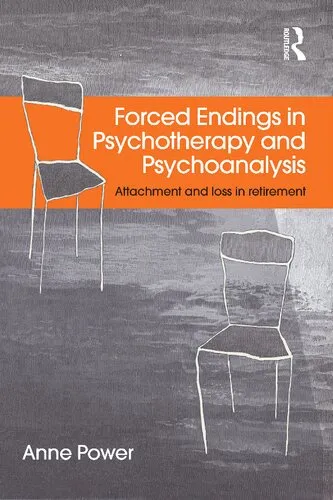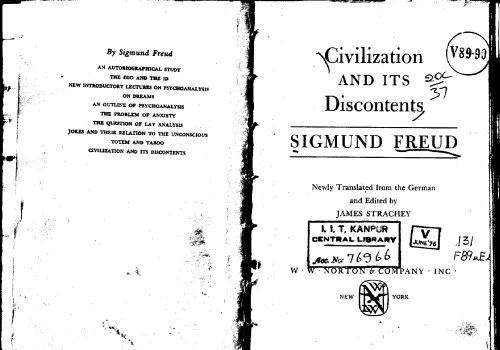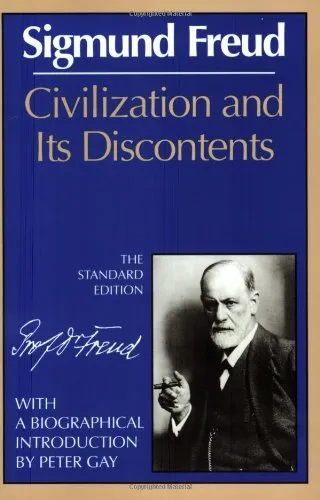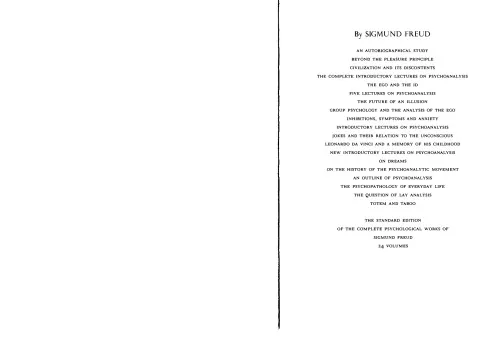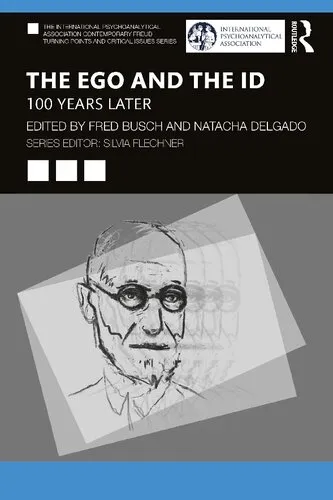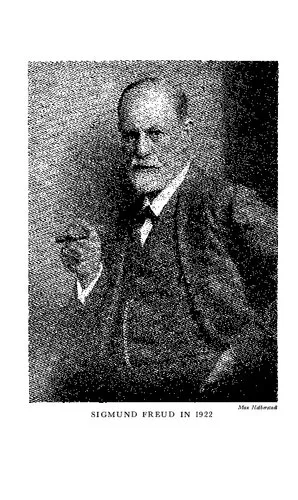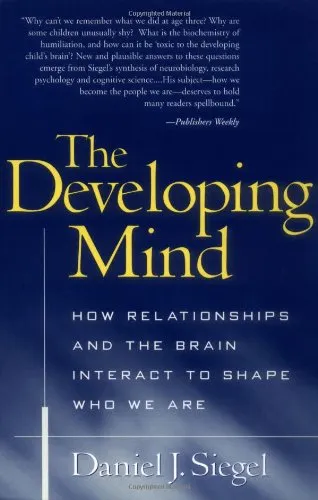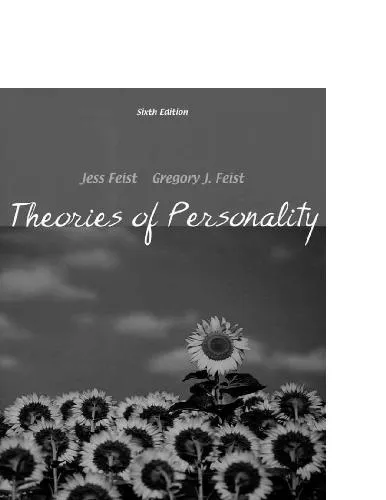Forced Endings in Psychotherapy and Psychoanalysis: Attachment and loss in retirement
4.8
بر اساس نظر کاربران

شما میتونید سوالاتتون در باره کتاب رو از هوش مصنوعیش بعد از ورود بپرسید
هر دانلود یا پرسش از هوش مصنوعی 2 امتیاز لازم دارد، برای بدست آوردن امتیاز رایگان، به صفحه ی راهنمای امتیازات سر بزنید و یک سری کار ارزشمند انجام بدینکتاب های مرتبط:
مقدمهای بر کتاب "Forced Endings in Psychotherapy and Psychoanalysis: Attachment and Loss in Retirement"
کتاب "Forced Endings in Psychotherapy and Psychoanalysis: Attachment and Loss in Retirement" اثر آن پاور به بررسی جوانب ناشناخته و پیچیده پایانهای ناگهانی در رواندرمانی و روانکاوی میپردازد، با تمرکز ویژه بر بازنشستگی و اثرات آن بر پیوندها و از دستدادنها.
خلاصهای دقیق از کتاب
این کتاب به موضوعی میپردازد که بسیاری از رواندرمانگران و روانکاوان با آن مواجهاند: پایانهای اجباری جلسات درمانی. این پایانها که اغلب ناخواسته و غیرمنتظرهاند، تاثیرات عمیقی بر هر دو طرف، یعنی درمانگر و مراجع، میگذارند. در این کتاب، اهمیت پیوندهای روانی و عاطفی که در طول فرآیند درمان شکل میگیرند، همچنین تعاملات پیچیده بین از دست دادن و رشد نهایی، تشریح میشود. بارزترین نمونهای که در اینجا تحلیل میشود، بازنشستگی درمانگر است که چگونه میتواند منشأ سوگ و قطع ارتباطات عمیق باشد.
نکات کلیدی کتاب
- پایانهای اجباری: بحث در مورد چگونگی رسیدن به خاتمه جلسات بدون رضایت، و تأثیرات آن بر رواندرمانی.
- درک وابستگیها: تجزیه و تحلیل روابط وابستگی که در طول درمان شکل میگیرد و چالشهای مرتبط با قطع آنها.
- نوآوری در رویکردها: راهکارهای جدید و تکنیکهای موثر برای مواجهه با نیهیل پایانهای اجباری.
جملات مشهور از کتاب
بازنشستگی، نه تنها یک تغییر حالت در زندگی شغلی، بلکه تغییری بنیادین در تمامیت روانی فرد است که شاید کمتر مورد توجه قرار گرفته باشد.
با هر پایان اجباری، نیاز به مرثیهای برای ارتباطی که بوده است و فرصت بیشتری برای رشد، به صورت موازی رشد میکند.
چرا این کتاب اهمیت دارد؟
این کتاب برای تمامی حرفهایهای درمانی و رواندرمانگران ضروری است تا بتوانند با نگاهی تازه به موضوع پایان جلسات بپردازند. بازنشستگی و پایانهای اجباری بخشی ضروری از حرفه درمانی است که میتواند بر نحوه پایداری روابط درمانی و حتی شخصی تأثیری عمیق بگذارد. درک بهتر این فرآیندها، میتواند به حمایت بهتر از مراجع و حصول نتایج درمانی مطلوبتری منجر شود.
Welcome to the profound exploration of an often-overlooked yet impactful topic in psychotherapy and psychoanalysis: forced endings. In 'Forced Endings in Psychotherapy and Psychoanalysis: Attachment and Loss in Retirement', we delve into the emotional, psychological, and relational dynamics that unfold when therapeutic relationships end prematurely, particularly in the context of retirement.
Detailed Summary of the Book
The book is a comprehensive investigation into the phenomenon of forced endings in therapeutic settings, highlighting the complex interplay of attachment, loss, and the challenging transition that therapists and clients face during retirement. It begins by defining what constitutes 'forced endings' within psychotherapy and psychoanalysis, then progresses to examine the various factors that influence these endings, including personal, professional, and systemic elements.
Each chapter is meticulously crafted to address different dimensions of forced endings. The journey starts with an exploration of attachment theory, offering insights into how attachment styles affect the therapist-client relationship. This is followed by a discussion on the psychological impact of retirement on therapists, with an emphasis on identity, loss of purpose, and the restructuring of self-concept.
Further, the book navigates through the emotional complexities that both therapists and clients experience, emphasizing the mutual loss and transition process. It integrates case studies, personal narratives, and empirical research to provide a holistic view of how these endings can be navigated thoughtfully and empathetically.
Key Takeaways
- The concept of forced endings in psychotherapy highlights the urgent need for awareness and preparedness in therapeutic practices.
- Understanding attachment styles can significantly improve how therapists and clients handle terminations.
- The book underscores the necessity of addressing personal and professional identity changes during retirement.
- It is crucial for therapists to develop strategies for managing their emotional responses to retirement.
- The significance of open communication and planning cannot be overemphasized in managing therapeutic endings.
Famous Quotes from the Book
"The ending of a therapeutic relationship is not merely a professional conclusion but a deeply personal journey of loss and transformation."
"In exploring forced endings, we uncover the unspoken fears and the silent grief that accompany the inevitable process of saying goodbye."
Why This Book Matters
This book is crucial for several reasons. Firstly, it sheds light on a topic that is often neglected in training and professional development, yet it is an integral part of the therapeutic journey. It provides practitioners with the knowledge and tools they need to handle terminations with greater sensitivity and competence.
Moreover, it serves as a valuable resource for understanding how forced endings affect not only the therapeutic alliance but also the individuals involved, encouraging therapists to approach these transitions with reflective practice and empathy. This awareness can lead to more effective and compassionate therapeutic practices and enhance the well-being of both therapists and clients.
Ultimately, 'Forced Endings in Psychotherapy and Psychoanalysis' addresses a gap in psychoanalytic literature by combining the theoretical with the practical, making it an indispensable guide for practitioners approaching retirement or those involved in handling therapeutic terminations.
دانلود رایگان مستقیم
شما میتونید سوالاتتون در باره کتاب رو از هوش مصنوعیش بعد از ورود بپرسید
دسترسی به کتابها از طریق پلتفرمهای قانونی و کتابخانههای عمومی نه تنها از حقوق نویسندگان و ناشران حمایت میکند، بلکه به پایداری فرهنگ کتابخوانی نیز کمک میرساند. پیش از دانلود، لحظهای به بررسی این گزینهها فکر کنید.
این کتاب رو در پلتفرم های دیگه ببینید
WorldCat به شما کمک میکنه تا کتاب ها رو در کتابخانه های سراسر دنیا پیدا کنید
امتیازها، نظرات تخصصی و صحبت ها درباره کتاب را در Goodreads ببینید
کتابهای کمیاب یا دست دوم را در AbeBooks پیدا کنید و بخرید
1382
بازدید4.8
امتیاز0
نظر98%
رضایتنظرات:
4.8
بر اساس 0 نظر کاربران
Questions & Answers
Ask questions about this book or help others by answering
No questions yet. Be the first to ask!
